Pray the O Antiphons
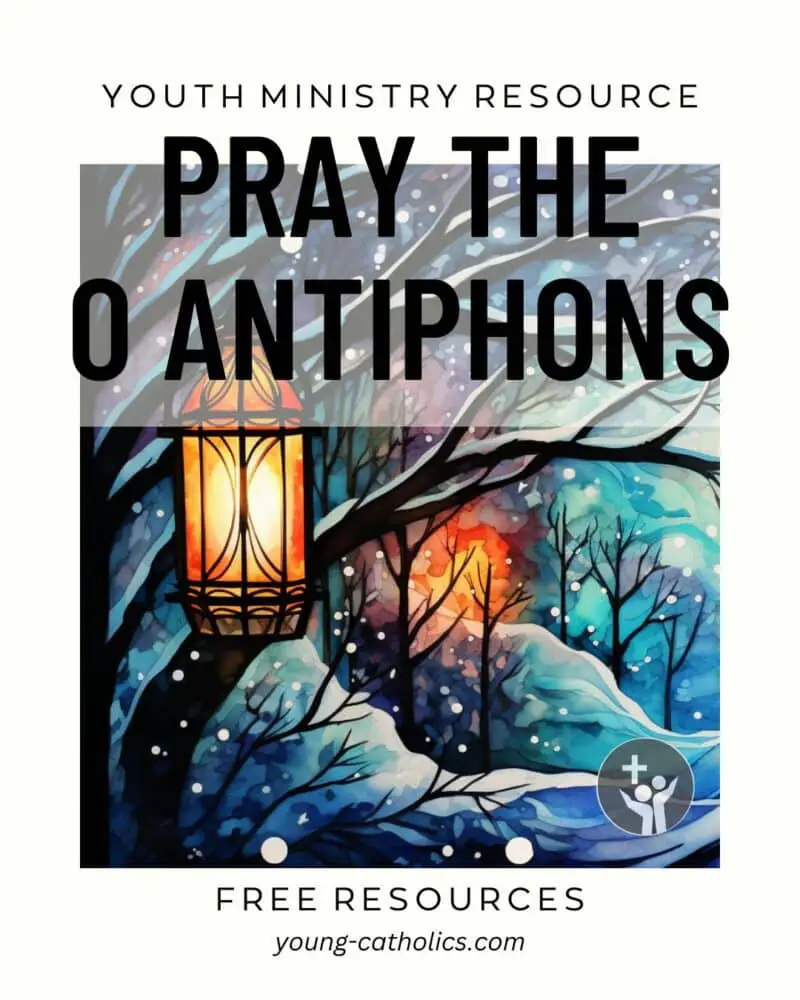
During the last days of Advent, the Church prays a special set of prayers called the O Antiphons. These are short prayers that begin with the word “O” and call on different titles of Jesus.
Each antiphon looks at a different way Christ has been revealed in Scripture. They are used from December 17 to December 23, one for each day.
These antiphons come before the Gospel Canticle at Evening Prayer in the Liturgy of the Hours. Many people also use them for personal prayer during the week before Christmas. They help us prepare our hearts for the birth of Jesus. Each one expresses a longing for the Messiah and ends with a prayer asking Him to come.
The titles used in the O Antiphons come from the Old Testament. They include names like “Wisdom,” “Root of Jesse,” and “Emmanuel.” These titles remind us that Jesus is the fulfillment of God’s promises. They help us see the connection between the Old Testament and the birth of Christ.
These prayers are a simple but beautiful way to get ready for Christmas. They help us focus on who Jesus is and why He came into the world. By praying them, we are asking Him to come into our lives again. This short time of prayer can help us slow down and reflect during the busy Advent season.
Echoes Through the Centuries
The O Antiphons are very old. Christians have been praying them for over 1,200 years. They were first used by monks in the early Church, possibly as far back as the 6th or 7th century. These prayers were a way to focus on the coming of Jesus in the days before Christmas. Over time, they became part of the Church’s Evening Prayer during the final week of Advent.
Each antiphon begins with the word “O” followed by a title for Jesus taken from the Old Testament. After naming Jesus, the prayer describes something He does or something He has promised. Then it ends with a request for Him to come and help His people. This format is the same in every antiphon, even though the titles and requests are different.
There are seven O Antiphons, one for each day from December 17 to 23. Each one looks at a different part of the story of salvation. They help us remember how God has always cared for His people and kept His promises. By praying these titles, we are asking Jesus to come and save us.
Many people know the O Antiphons through the hymn “O Come, O Come, Emmanuel.” Each verse of that hymn is based on one of the antiphons. This makes the O Antiphons a familiar part of Advent, even for people who may not know their full history.
Teaching with Wonder
The O Antiphons are full of Bible themes that connect to our Catholic faith. Each title comes from Scripture and points to Jesus. For example, “O Wisdom” connects to Proverbs, and “O Root of Jesse” ties to Isaiah. These short prayers help young people see how Jesus is the promised Savior found throughout the Old Testament.
In Catholic catechesis, we want young people to know who Jesus is. The O Antiphons do this in a simple but rich way. They teach about His role as teacher, king, healer, and savior. These prayers can be a starting point for lessons on salvation history, the names of Christ, or the meaning of Advent.
The Catechism says, “The coming of God’s Son to earth is an event of such immensity that God willed to prepare for it over centuries” (CCC 522). The O Antiphons help us reflect on that preparation. They show how Jesus is the answer to the hopes and prayers of God’s people.
In youth ministry, these prayers can spark good conversation. Teens can explore one title each day and look up the Bible verses behind it. Art, music, and prayer can be tied in. The O Antiphons make Advent more meaningful and help young people connect with Jesus in a deeper way.
December 17 – O Wisdom
O Wisdom of our God Most High, guiding creation with power and love:
come to teach us the path of knowledge!
This antiphon calls Jesus “Wisdom.” It reminds us that Jesus is not only our Savior but also our teacher. In the book of Proverbs, Wisdom is described as being with God from the beginning, helping guide the world. This helps us see that Jesus has always been with the Father.
In the Gospel of John, Jesus is called the Word made flesh. That means Jesus is not just wise—He is Wisdom itself. He knows the way we should live and wants to share that with us. He guides us with care, just as Wisdom guided creation.
Wisdom is more than facts or school knowledge. It means knowing how to live in a way that pleases God. It means choosing good and turning away from sin. Jesus helps us do this when we listen to Him and follow His example.
This prayer invites us to ask Jesus to teach us. We live in a noisy world with many opinions, but true wisdom comes from Christ. When we pray this antiphon, we ask Him to show us the right path and help us grow in understanding.

December 18 – O Leader of Israel
O Leader of the House of Israel, giver of the Law to Moses on Sinai:
come to rescue us with your mighty power!
This antiphon calls Jesus the Leader of Israel. This title reminds us of Moses, who led God’s people out of slavery in Egypt. In Exodus 19–20, God gave Moses the Law on Mount Sinai. These commandments helped the people know how to live as God’s own nation.
The antiphon also points to the promises in the book of Ezekiel. In Ezekiel 34, God says He will raise up a shepherd to lead His people. Christians believe Jesus is the one God promised. He is the true leader who brings His people to safety and peace.
Jesus leads us in love, not fear. He shows us how to follow God through His words and His actions. He walks with us, guiding us with patience. Like Moses, Jesus speaks on our behalf, but He does even more—He brings us to new life.
When we pray this antiphon, we ask Jesus to come and lead us again. We ask for His strength, His help, and His wisdom. We trust that He will never leave us. As we follow Him, we grow in faith and learn to live the way God wants.

December 19 – O Root of Jesse
O Root of Jesse’s stem, sign of God’s love for all his people:
come to save us without delay!
This antiphon calls Jesus the Root of Jesse. It refers to Isaiah 11:1, where the prophet says, “A shoot shall sprout from the stump of Jesse, and from his roots a bud shall blossom.” Jesse was the father of King David, so this title points to Jesus’ royal family line.
Jesus comes from the family of David, just as the prophets said the Messiah would. But His beginning was quiet and simple. He was born in Bethlehem, David’s city, but He was not treated like a king. Just like a root is hidden underground, many people did not see who Jesus really was.
Even though His birth was humble, Jesus is the promised King. He brings hope and new life. He does not rule with power or fear. He rules with love, mercy, and justice. His Kingdom will never end.
When we pray this antiphon, we remember that God keeps His promises. Jesus is the root that brings new growth. He is the sign that God has not forgotten His people. We ask Him to come quickly and save us, because we need His help and His love in our lives.

December 20 – O Key of David
O Key of David, opening the gates of God’s eternal Kingdom:
come and free the prisoners of darkness!
This antiphon calls Jesus the Key of David. This title comes from Isaiah 22:22, where God says, “I will place the key of the House of David on his shoulder.” The key was a sign of power and trust. It meant someone had the authority to open and close doors no one else could.
In the book of Revelation 3:7, Jesus is described as the one “who has the key of David.” He is the one who opens the door to God’s Kingdom. No one else can give us access to eternal life. Only Jesus has that authority.
This image also reminds us that Jesus has the power to free us. He opens the gates that hold us back—sin, fear, and doubt. He sets us free from the darkness and leads us into His light.
When we pray this antiphon, we ask Jesus to unlock our hearts. We ask Him to help us leave behind anything that keeps us from Him. With His key, Jesus brings freedom, healing, and hope. Let us welcome Him and follow where He leads.
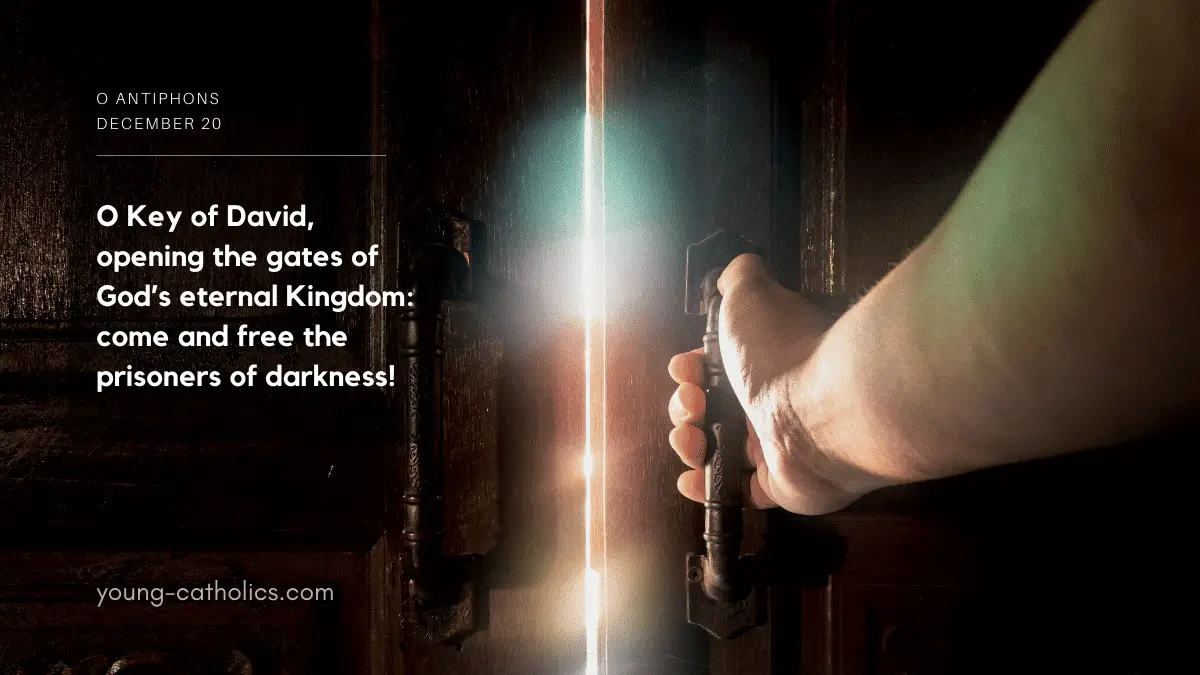
December 21 – O Radiant Dawn
O Radiant Dawn, splendor of eternal light, sun of justice:
come and shine on those who dwell in darkness and in the shadow of death.
This antiphon calls Jesus the Radiant Dawn. It points to Malachi 3:20, which says, “For you who fear my name, the sun of justice will arise with healing in its wings.” Jesus is like the rising sun. His light brings warmth, healing, and hope to the world.
This prayer also reminds us of John 1:5. There we read, “The light shines in the darkness, and the darkness has not overcome it.” Jesus is the true light that no darkness can put out. He brings new life where there was sadness and shows us the way when we feel lost.
The world can feel dark at times. We see pain, confusion, and fear. But Jesus, our Radiant Dawn, breaks through that darkness. He gives us peace. He helps us begin again, just like the dawn begins a new day.
When we pray this antiphon, we ask Jesus to shine in our lives. We invite Him to light up our hearts and guide us through each step. And as we walk in His light, we can also share that light with others.
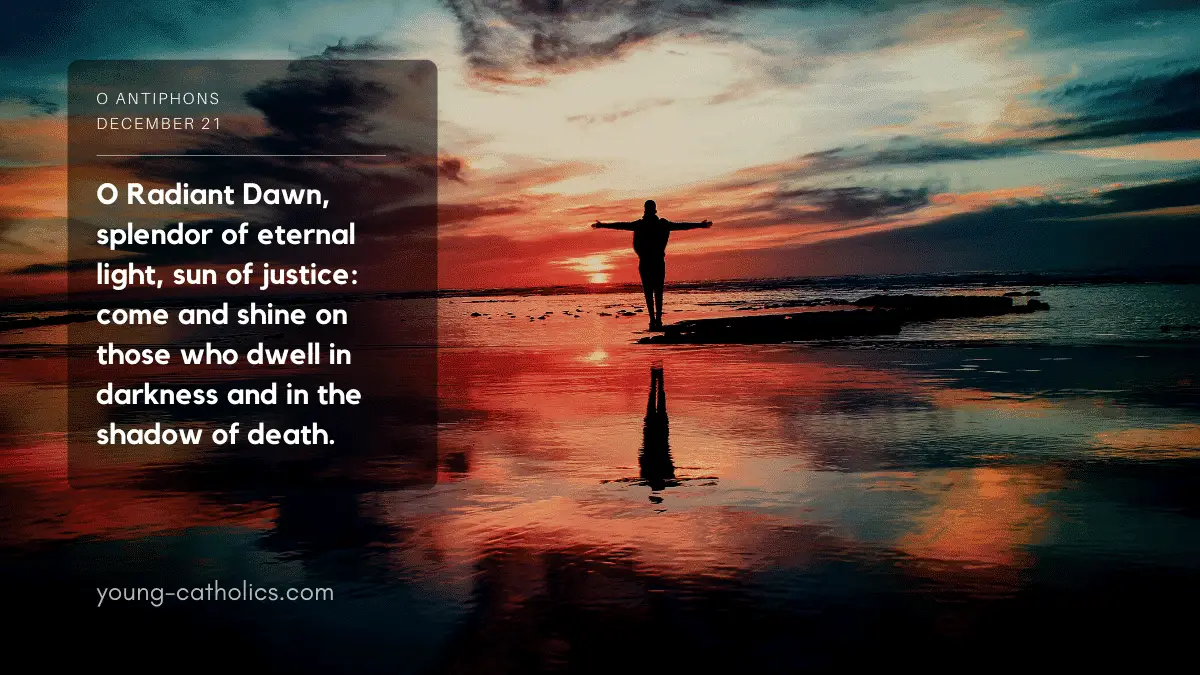
December 22 – O King of All
O King of all nations and keystone of the Church:
come and save man, whom you formed from the dust!
This antiphon calls Jesus the King of All. It reminds us that He is not just king of one country or one people—He is King for everyone. In Isaiah 9:6–7, the prophet says a child will be born who will rule with justice and peace. That child is Jesus.
Jesus is also called the cornerstone, or keystone. This comes from Psalm 118:22, “The stone the builders rejected has become the cornerstone.” The Church is built on Christ. He holds it all together. Without Him, everything would fall apart.
Unlike earthly kings, Jesus does not rule by force. He rules with love. He does not seek riches or power. He serves others and brings healing. His kingdom is one of peace, mercy, and truth.
When we pray this antiphon, we welcome Jesus as our true King. We ask Him to rule in our hearts and guide our choices. He made us from the dust, and He never forgets us. Let us live as members of His Kingdom, seeking to serve and love like He does.
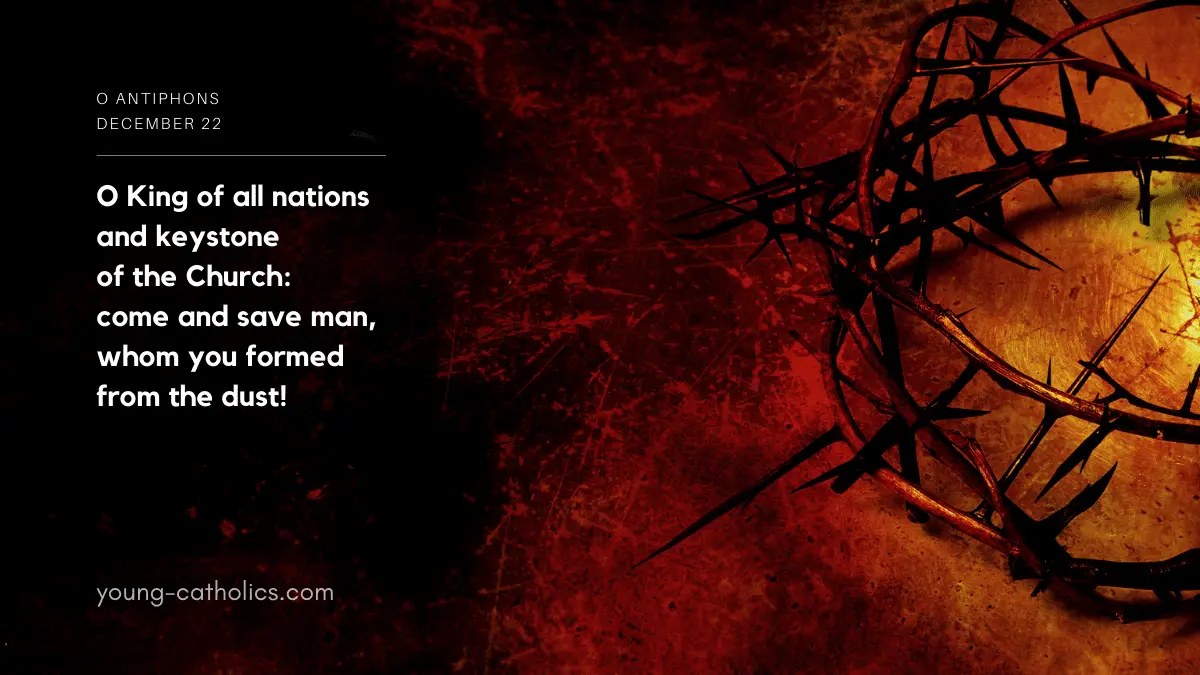
December 23 – O Emmanuel
O Emmanuel, our King and Giver of Law:
come to save us, Lord our God!
This antiphon calls Jesus “Emmanuel,” which means “God with us.” This name comes from Isaiah 7:14: “The virgin shall conceive and bear a son, and shall name him Emmanuel.” In Matthew 1:23, this prophecy is fulfilled when Jesus is born. He is truly God with us.
Jesus is not far away or out of reach. He came to live among us. He knows what it means to be tired, hungry, or sad. He walks with us through everything we face. That is what makes His name, Emmanuel, so comforting.
He is also called our King and Giver of Law. Like Moses, He teaches us how to live. But more than that, He gives us the grace to follow Him. He leads with kindness, not pressure. His presence brings peace to our hearts.
When we pray this antiphon, we remember that we are never alone. Jesus is always near. We ask Him to save us and stay with us. As we wait for Christmas, we rejoice in knowing that our Savior is truly Emmanuel—God with us, now and forever.

Resources
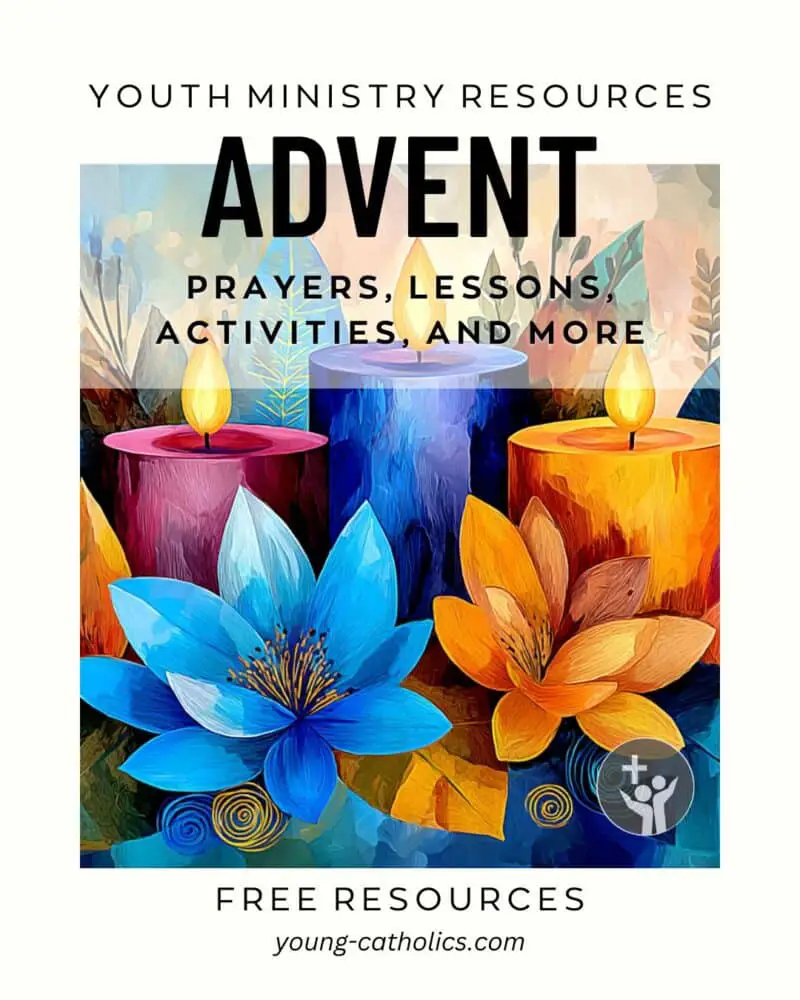
More Advent Ideas
The O Antiphons help us focus on the meaning of Advent. They remind us that Jesus is the Savior we are waiting for. In the same way, our Advent resource page offers simple ways to prepare for His coming. You’ll find prayers, crafts, and projects that bring faith into daily life. These activities can help families and individuals slow down and reflect during this busy season.
Teachers and catechists will also find helpful tools. There are lesson plans made for Advent that work well in classrooms or parish programs. These resources are easy to use and help young people understand what Advent is all about. Whether you are planning for home, school, or church, this page offers ideas that match the quiet hope of the season.
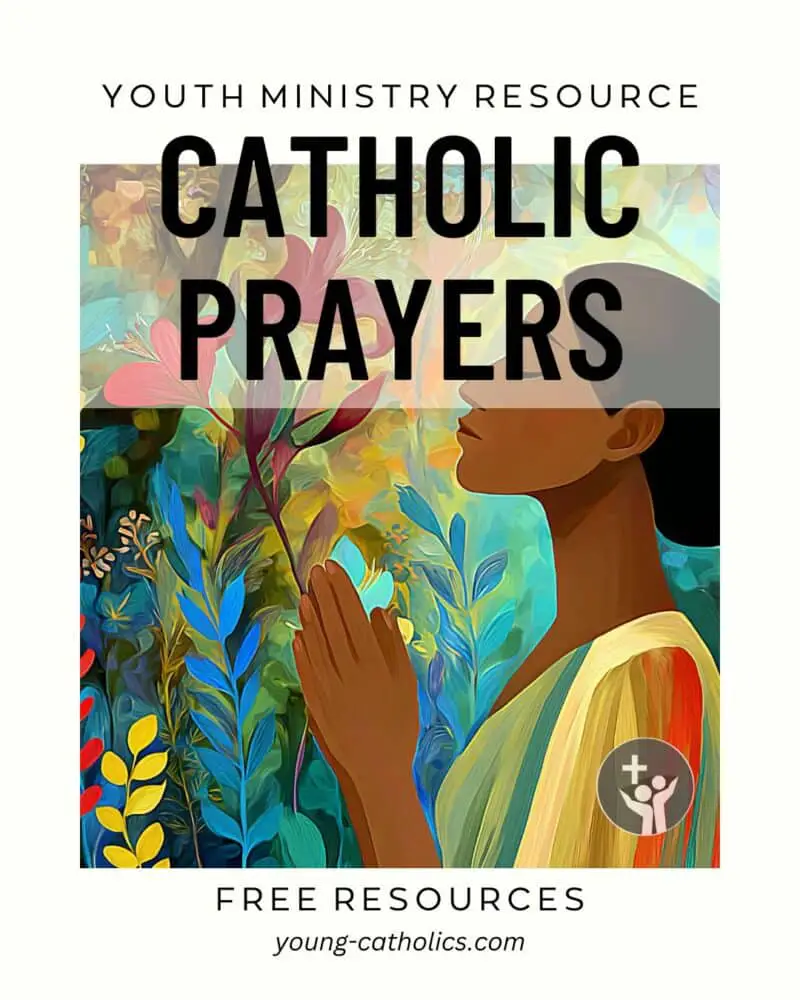
Catholic Prayers Page
The O Antiphons are just one of many beautiful prayers you can use during Advent and throughout the year. If you are looking for more ways to grow in faith through prayer, take a look at our Catholic Prayers page.
You’ll find traditional prayers, seasonal prayers, and simple ones for everyday use. Whether you’re new to prayer or looking for something meaningful to share with a group, there’s something for everyone. Visit our Catholic Prayers page to explore more.
Social Media Graphics and Bulletin Artwork
Light in the Waiting

This peaceful winter scene with a glowing lantern captures the spirit of Advent and the message of the O Antiphons. Use it to brighten up your parish bulletin, newsletter, or classroom display. It’s perfect for reflecting on the light of Christ coming into a dark world.
This image is available for download from our Catholic resource website to help you share the beauty and hope of the season.
Paid subscribers may download a large copy this digital artwork (without watermarks) free of charge by clicking here. You must be logged in as a paid subscriber to access the file.
Only current paid subscribers have the rights to use the artwork.
If you would like this image to be made available as a specific product (card, poster, mug, etc.) or as an extra high resolution image for personal use just post a comment about what you want and we will create a link to our online store for you.
Frequently Asked Questions about the O Antiphons
What are the O Antiphons?
The O Antiphons are a set of seven short prayers used during the last week of Advent. Each one begins with the word “O” and a title for Jesus, like “O Wisdom” or “O Emmanuel.” They ask Jesus to come and help His people.
When do we pray the O Antiphons?
The Church prays the O Antiphons from December 17 through December 23. Each day has one special antiphon. They are prayed before the Gospel Canticle during Evening Prayer in the Liturgy of the Hours.
Where do the titles in the O Antiphons come from?
Each title comes from the Bible. Most are found in the Old Testament, especially in Isaiah and Proverbs. These titles help us see Jesus as the promised Savior from Scripture.
Are the O Antiphons just for priests or monks?
No. Anyone can pray the O Antiphons. Families, youth groups, or individuals can use them during Advent. They are a great way to prepare for Christmas.
Is “O Come, O Come, Emmanuel” based on the O Antiphons?
Yes. Each verse of that hymn is based on one of the O Antiphons. If you sing that song during Advent, you are already using the O Antiphons in your prayer.
Can the O Antiphons be used in youth ministry?
Yes. They are a great tool for teaching about Jesus. Each antiphon connects to the Bible and the story of salvation. They are short, meaningful, and easy to explore with teens.
Seven Names, One Savior
The O Antiphons are a special set of prayers used in the final week of Advent. Each prayer begins with the word “O” followed by a title for Jesus, such as “O Wisdom” or “O Emmanuel.” These titles come from the Old Testament and point to the different ways Jesus is our Savior.
Each antiphon is prayed on a different day from December 17 to December 23. They are part of Evening Prayer in the Church’s Liturgy of the Hours. Many people also use them in personal or family prayer. Each one asks Jesus to come and bring hope, healing, or guidance.
These prayers can be helpful in youth ministry too. They connect to Bible themes and show how Jesus fulfills God’s promises. They are short, simple, and meaningful, which makes them easy for teens to understand and talk about.
By using the O Antiphons, we prepare our hearts for Christmas. They help us slow down and focus on who Jesus is. Each day offers a new way to reflect on His role in our lives.
Your Turn
Have you used the O Antiphons in your prayer life? Did they help you prepare for Christmas or think about who Jesus is in a new way?
We’d love to hear from you! Share your thoughts or experiences with the O Antiphons in the comment section below. Your story might help others grow in their faith too.


Leave a Reply